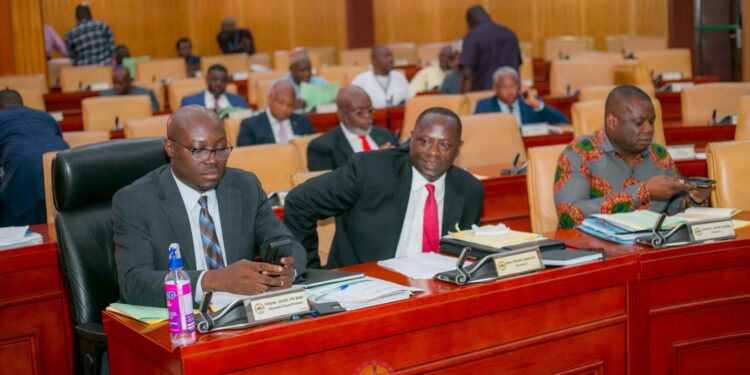The Minority Leader, Dr Cassiel Ato Forson, has asserted that Parliament is prepared to override President Akufo-Addo’s veto should he decline to approve the Promotion of Proper Human Sexual Rights and Ghanaian Family Values Bill, commonly known as the anti-LGBTQ+ Bill.
Dr Ato Forson underscored Parliament’s commitment to upholding its responsibilities despite any unconstitutional actions taken by President Akufo-Addo.
President Akufo-Addo has rejected three bills passed by the House last year on the grounds that they are private members’ bills and entail charges on the Consolidated Fund.
The anti-LGBTQ+ bill, also categorised as a private members’ bill, contains clauses imposing charges on said fund.
During a media briefing on Wednesday, February 7, 2024, Dr Ato Forson clarified that should the President choose not to sign the bill into law, Parliament retains the authority to override his decision through a two-thirds majority vote.
“There are rumours out there that after passage, the president did not sign it into law. However, the constitution envisioned this, and it said the House will have to use a certain approach which is the House using the two-thirds majority of members to approve it,” he explained.
“So let us deal with the first hurdle and get it passed and then send it to the President and if he fails to assent, we will take a decision,” he said.
However, Majority Leader Osei Kyei-Mensah-Bonsu also, at the same briefing, indicated that Parliament will persist in discussions regarding the constitutional concerns raised about the bill.
Meanwhile, Parliament has approved an amendment to the Human Sexual Rights and Family Values Bill, imposing up to six months of a custodial sentence on individuals who aid, facilitate, encourage, or promote LGBTQ activities.
The amendment was proposed by co-sponsor of the bill Sam George, who believes that strict punishment is necessary to ensure compliance with the law once passed.
Under the amended bill, those found guilty of promoting LGBTQ activities will face a minimum sentence of three months and a maximum of six months, or a fine of GH₵600 minimum to GH₵1200.
Speaking in Parliament, Sam George said that, “for me, even the GH¢600 is a bargain because it aims to prevent lengthy custodial sentences.
“However, judges retain the discretion to impose fines, imprisonment, or both. Therefore, I believe that GH₵600 to GH₵1200, or a minimum of three months and a maximum of six months, serves as an adequate deterrent.”
However, Deputy Majority Leader Alexander Afenyo-Markin opposes the amendment, advocating for a custodial sentence of no more than three months.
He argued that imprisonment not only incurs state costs, but there have been studies that show that people go to prison and become worse off after their release.
Also addressing Parliament, Mr Afenyo-Markin noted, “We should rather look at one month and three months, instead of three months and six months. Yes, if the commensurate penalty unit cannot be defined within the context of the proposal which is two months and four months, then we should not go higher.”
On fine, he added, “the court has a position on sentencing. It’s the reason why we now have introduced this plea bargain thing. The plea bargain in law that we have enacted is also aimed at dealing with some of these things.”
“In even serious criminal matters if the person is ready to pay to deal with the issue of the time for the trial and all, and also depopulate our prisons,” he said they are allowed the option of fine.










Discussion about this post